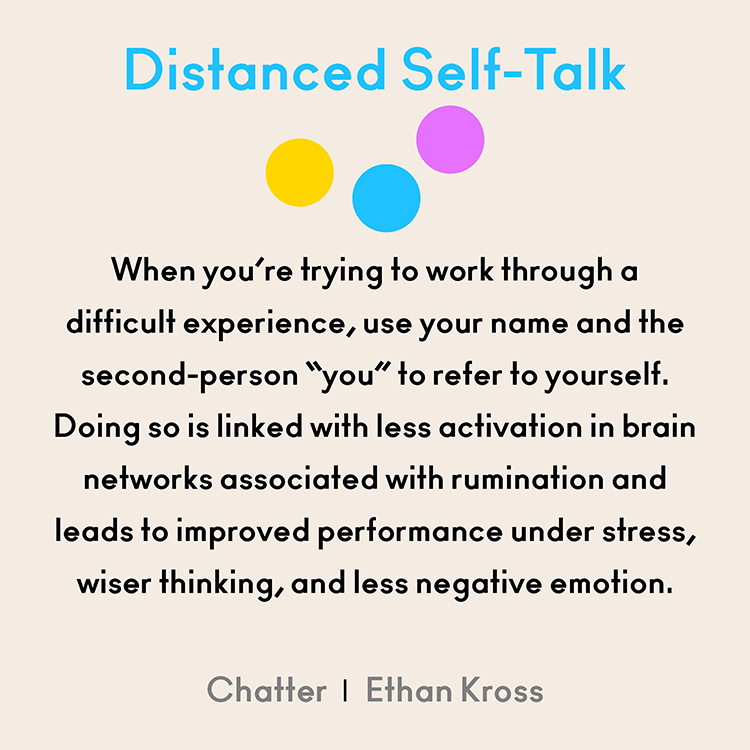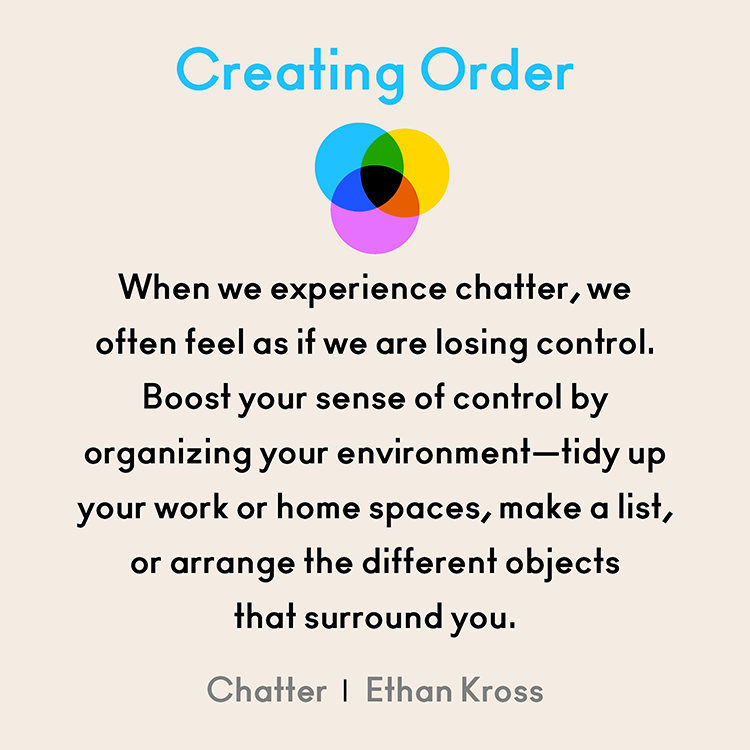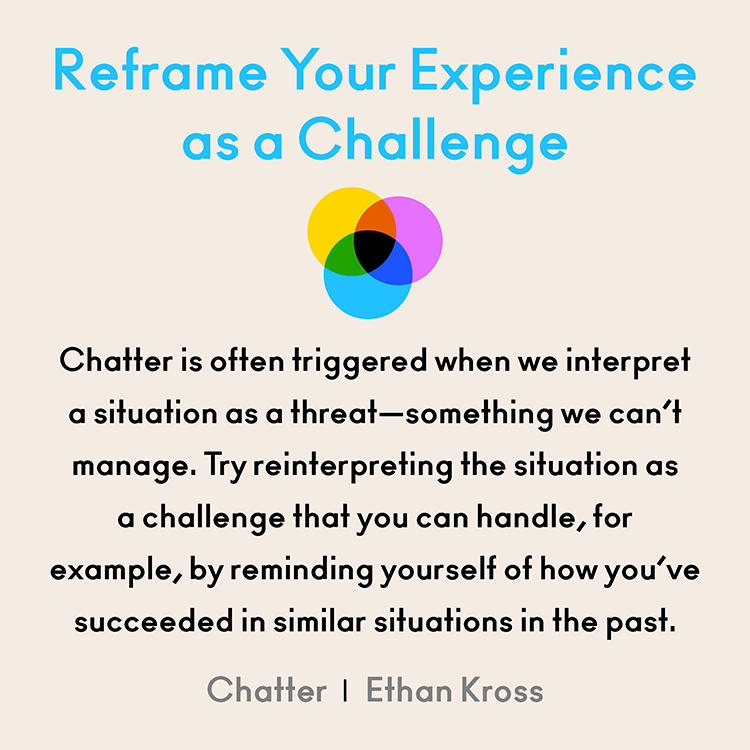Ethan Kross on Quieting the Chatter and Engaging in Positive Self-Talk
Most Americans have now been living with the stress and anxiety related to COVID-19 for a year—a fact that’s still hard to wrap one’s mind around. While working from home—and balancing it with childcare, schooling and household responsibilities—have become the norm, for many it still feels far from normal. While the newly approved vaccines offer hope, there’s still no clear answer on when it’ll be safe to return to schools, offices and a semblance of life as we knew it. However, despite the hardships, many experts maintain that restructuring one’s thoughts can really help both parents and kids better manage stressful situations.
One such expert is Ethan Kross, a psychologist, professor, parent and author of the newly released book Chatter: The Voice in Our Head, Why It Matters, and How to Harness It, which explores the silent conversations we tend to have with ourselves and how we can shift them from a place of anxiety to one confidence. The book discusses several tools to help achieve this, such as distanced self-talk, rethinking relationships with social media, surrounding ourselves with people we trust and more.
Here, he sat down with The Bump to discuss how parents can help their children (and themselves) better manage stress and redirect anxious thoughts during the ongoing pandemic and beyond.
One way parents can help ease kids’ stress is to broaden their perspective, explain how what’s bothering will pass, and to help them focus on the positives. Another great strategy is getting kids outside. Being out in nature, running around, burning off energy is, of course, often fun. But research shows that enhancing people’s exposure to green spaces can also have a replenishing effect, recharging us when we feel depleted.
What are some tools that you’ve implemented and found helpful in managing stressful situations with your kids this year?
One of the things I do with my own kids is something called distanced self-talk—I ask my children to coach themselves through a problem using their own name like they were advising someone else. Scientists call this distanced self-talk and have found that it can be useful for helping children and adults control their emotions. One way of making this tool particularly friendly for kids is to ask them to pretend they are a superhero like Wonder Woman or Batman, and then ask them how that superhero would handle the situation. Envisioning themselves as superheroes provides them with some mental space from the problems they’re grappling with which helps them persevere.
My wife and I often tell them, “Not what if, so what.” When our daughters come to me with questions about what if this happens, we like to help them reframe it. So what if that does happen. What would we do? And then we help coach them through how they would handle things. Often when they think about things from that perspective they’re able to problem solve on their own and the situation becomes much less stressful.
Funny enough, the same advice I would tell a parent to give their child is the advice I would give them. Coaching yourself through a problem like you’re giving advice to someone else is a great way to see the situation more clearly. Another tool that has proven helpful is thinking about how you’ll feel when it’s over… For example, homeschooling is a challenge for parents from coast to coast, but think about how grateful you’ll feel once they go back to school. The joy they will have from being with their friends. The time that will be freed up and the sigh of relief you will exhale when you feel safe letting them back in the classrooms. Engaging in that mental time travel makes it clear that what we’re going through is temporary—it will eventually end—and that gives us hope which makes it easier to endure the hardships we now face.
Social media is a huge challenge. On the one hand, it can make you feel better to post positive or happy images, and it can be a great tool for connecting with others to obtain and provide support at opportune times. On the other hand, it can lead to chatter when you’re flooded with constant images of perfection and compare yourself to others. The proliferation of stressful news on social media can also impact how we feel.
First, start by curbing your passive usage to minimize the amount of time you’re exposed to information that can worsen your mood. I also recommend trying to actively use the technology during convenient times to connect with others and provide support. Of course, placing limits on your social media usage isn’t a bad idea either. In our research on this topic we consistently find that interacting with other people directly in daily life via phone or through face-to-face contact predicts improvements in people’s emotional well-being.
Kross’ book will be available on Amazon.com starting January 26.
Please note: The Bump and the materials and information it contains are not intended to, and do not constitute, medical or other health advice or diagnosis and should not be used as such. You should always consult with a qualified physician or health professional about your specific circumstances.
Navigate forward to interact with the calendar and select a date. Press the question mark key to get the keyboard shortcuts for changing dates.
























































